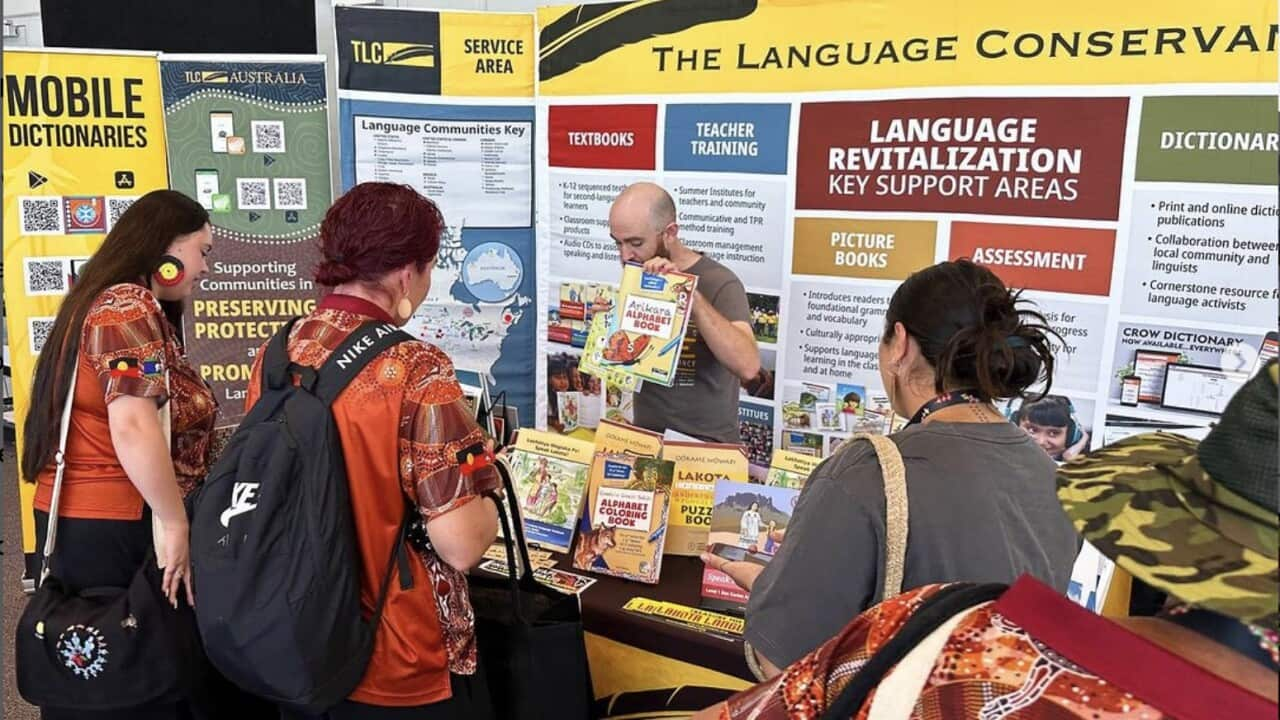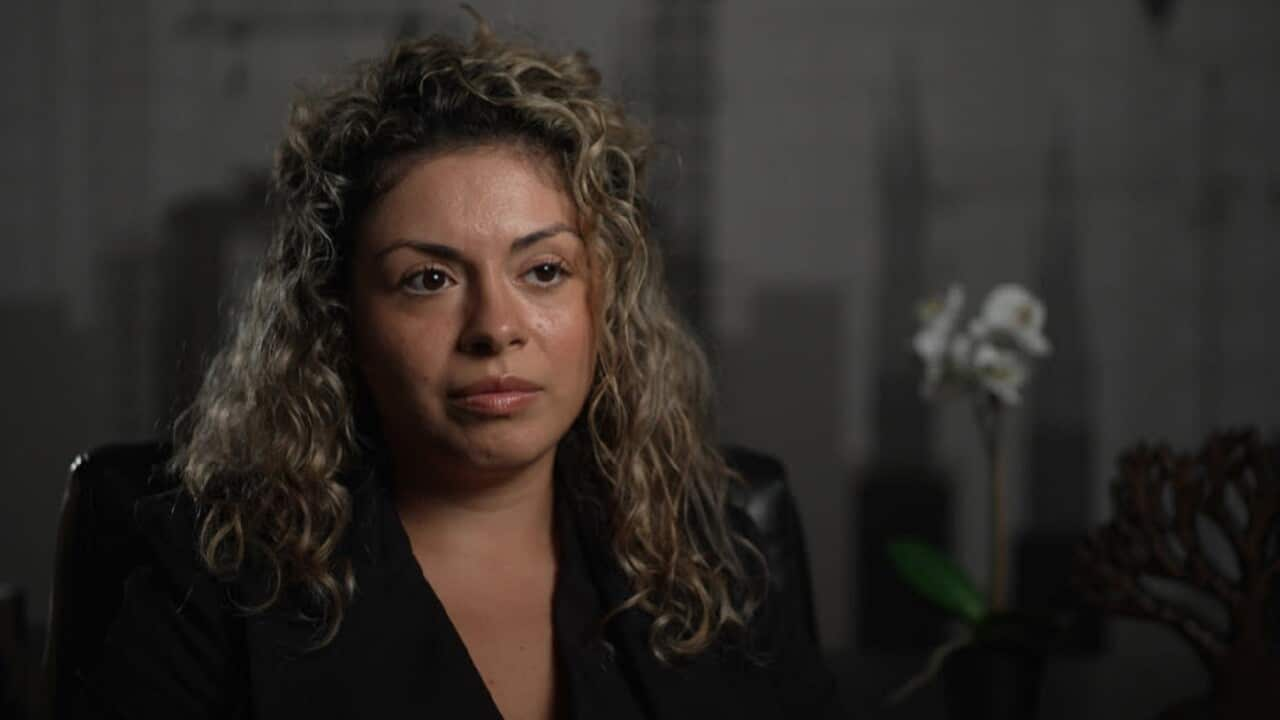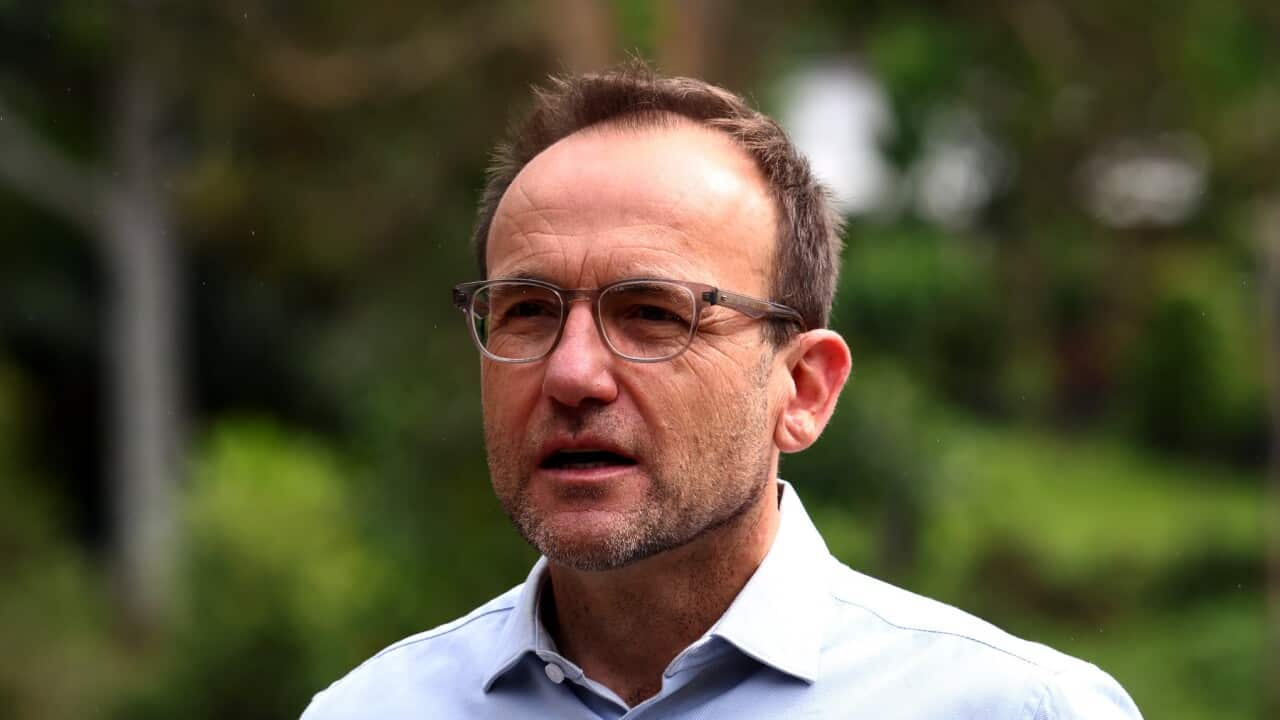The United Nations has labelled the decade until 2032, the International Decade of Indigenous Languages.
Gamilaraay and Wiradjuri man Daryn McKenny helped to organise the PULiiMA Indigenous Languages and Technology Conference - the first since 2019.
He told Biwa Kwan a lot came out of the gathering.
TRANSCRIPT
DARYN MCKENNY:
It ended up being over 1,000 people here. This has actually become the largest Indigenous language conference ever held globally. And everyone brought it. Everyone brought voice, That's something which 'Puliima' in Awabakal language (Traditional Owners of the Newcastle/Lake Macquarie/Lower Hunter region) actually translates to "meaning voice" to "making voice". And that is what has happened.
The sooner we can stop the loss, the better. But it's actually bold and brave because - I use this analogy: our languages are sitting on a knife's edge. And no matter what, every day, every week, every month, every year, that knife is getting sharper.
BIWA KWAN:
If we look at the turning point here between pre-colonisation in Australia and post-colonisation... describe for our listeners, just what that impact has been in terms of stopping the loss on the language. Any personal reflections from you Darren on how you're seeing that?
DARYN MCKENNY:
We (Australia), unfortunately, have suffered one of the worst losses of language. We're up there in the top three: Australia, North America, and South America. More languages have been lost in those three areas than any other place on this planet.
For us to have had this happen in such a short time. That's hard to take. You know, we had 500-plus languages, easily, distinct languages. Cross a river and it changes. Cross a mountain range it changes.
And to be in a position where we've only got possibly 15 of those in that position. That's not good. That's why we bring Puliima to Larrakia Country, to Darwin. Because this Top End of Australia, the tip of Cape cape, around the east and west side of Cape York through Yolngu Country, through the rest of Arnhem land. Over here Larrakia and the top of Kimberleys that's one of the world's hotspot.
If you were to paint it red - these places? It's bright red. The rest of Australia in colour, we're light colour because the effect (of language loss) has happened. It's cold in that respect, if you were to use a temperature scale. So yeah, it's hard to take, but it has happened so quickly, and so drastically here.
BIWA KWAN:
And when we talk about the world's first scientists, the world's first storytellers... we know that Aboriginal Torres Strait Islanders - 60,000 years of continuous culture. Just how important is the language in retaining that wealth of knowledge and that continuous story?
DARYN MCKENNY:
That's a good question. But I would also like to start to challenge people's thinking on these numbers of 60,000 years. Our stories, our dreamings, our belief system, comes from creation. Creation didn't happen 60,000 years ago. Creation happened a hell of a lot longer. So we need to actually acknowledge that.
And if it wasn't, it must be that our creation stories are made up. They're not made up. These creation stories, our belief system, our knowledge systems are carrying sciences.
We talk about climate change. Our people have been living with climate change forever since millennial. We have been adapters of climate change since millennial. And it's now that we're having to put up with human-impacted climate change.
And you know what? Sitting within our languages and within our knowledge systems are lessons to be learned. Sitting within our stories on how we adapt... Go to Newcastle - 15,000 years ago, the shoreline was actually 100 kilometres out to sea. Our people have had to move and have had to adapt to this change. Our lakes were valleys where people were living; now their lakes.
It's all sitting within our knowledge system. Look at the word kangaroo. Cook would say kangaroo rest of Australia says kangaroo. Go to Guugu Yimithirr (language in far north Quuensland) they'll say Gangurru. What does Gangurru mean? Old man Eastern Grey (kangaroo species). It's talking about age. It's talking about sex. It's talking about species. That's our grandfather. That's their grandfather. The grandmother has its own name. The grandma is not called Gangurru. We need to realise what we have - to start to impact change, so that we don't lose it.
BIWA KWAN:
And Darren, I'd like to hear more about some of the work you've been doing over decades, Miromaa (an Awabakal word meaning "Saved, to stop from loss"), your organisation. You've really found a need to bring in software and technology - bring in any tools we can, to stop the loss of language. Give me a sense of how you've been personally invested over the decades in revitalising language.
DARYN MCKENNY:
In 2003, I was directly told that Aboriginal people cannot revive, or reclaim, their language. That hit hard. Two Aboriginal fellas can't bring back a language. Sorry, who are you to tell us... but that's what we were told. That was the thinking in the academic world, in the non-Indigenous space, that Aboriginal people can't do this.
It lit a fire, which has been stoked ever since. The first thing is why can't we do it? Well, we ain't got the tools do we? We got the voice. We got the people. We didn't have the tools to what we need.
So I set about making one of those tools to support our people, to empower our people, to give our people the opportunity to obtain the employment opportunities within the language programs, to use tools made by us, for us. And put our people in the seat of documenting, capturing and disseminating, translating and analysing our languages.
That was a big step. That was confronting to that to that non-Indigenous academia space, because to them, it's business. To us, it's our life. And we needed to challenge that.
So those tools, which I created, called Miromaa, has actually now been picked up, obtained from all around Australia, from all the islands. All around the world - go to North America, central, south. Pick a continent: Asia, Africa, Europe, all over the place. It's crazy. We've done at least our part to create something to meet the demand and the want of Indigenous people to do whatever they can to save our traditional languages.
BIWA KWAN:
The Arts Minister, Tony Burke, being at the conference, he talked about the government's commitment to a Voices of Country strategy, which will involve: outlining and reporting on measurable commitments to support the priorities (including) stop the loss (and) the other five pillars. And $27 million each year to support First Nations cultural expression through Indigenous languages and arts program.
What are your thoughts on that strategy; and what it will take to see success in this space?
DARYN MCKENNY:
I'm one of those people on what has been called the Directions group, which drove the development of the action plan for Australia's response to the (UN) international decade for Indigenous languages to which Minister Burke launched at Puliima.
It's actually a groundbreaking document. A lot of people don't know that that document - that action plan - is one of the first ever in partnership with both the Australian government and the Aboriginal and Torres Strait Islander community.
That is a massive undertaking, and ownership of this going forward. Within that action plan is not government's voice. It is our voice. It is our themes. It is our actions. It is our strategies. And it has come from ground root community level. There's a strategy in there to be able to support anyone and everyone to be part of learning the languages of this land.
BIWA KWAN:
And the five pillars being: stop the loss, Aboriginal and Torres Strait Islander communities at the centre, caring for Country, intergenerational knowledge transfer, truth telling, and celebration.
What are some of the examples where we see those things being embodied?
I know that there's been pushes, for instance, in Tasmania to have more Aboriginal place names, signage... More interweaving, in our everyday.
What are some steps that people can do to help support this?
DARYN MCKENNY:
Caring for Country. That (applies) to all of us. That's a major, major theme. This country at the moment is hurting.
And country is not just land. It is also sea. It is our plants. It is our animals. Australia's got more endangered animals, more endangered wildlife than any other continent in the world.
It is also the people. Country is the people itself as well. It from the stars to the bottom of the sea. When you look at language is full of knowledge, which is our sciences. Yeah, absolutely. It has to be in there.
When we talk about place names. We don't want dual names. None of this dual name stuff. Sorry. Be brave. Sorry, be brave and change this. One word. One phrase.
The thing is what we need to be doing is when White Australia comes across our languages, comes across that word. Whether it is the name of their suburb where they live - or the street sign is where they where their houses, or whatever it may be... that word is knowledge. It's ownership. It's something which we should all be proud of.
We travel the world and go on overseas holidays to experience someone else's culture. Yet here we are with the world's oldest living culture, oldest living knowledges, oldest living languages, smack bang here. We need to understand that.
When we have truthtelling, that's going to be part of that truthtelling there (it) is that acknowledgement and that realisation.
When it comes to celebration, events like Puliima and everything else there that everyone does with the community. That celebration, celebrate it.
It is love. It is warmth that brings people together. It's song, it's dance, it's performance. Celebrate it.













